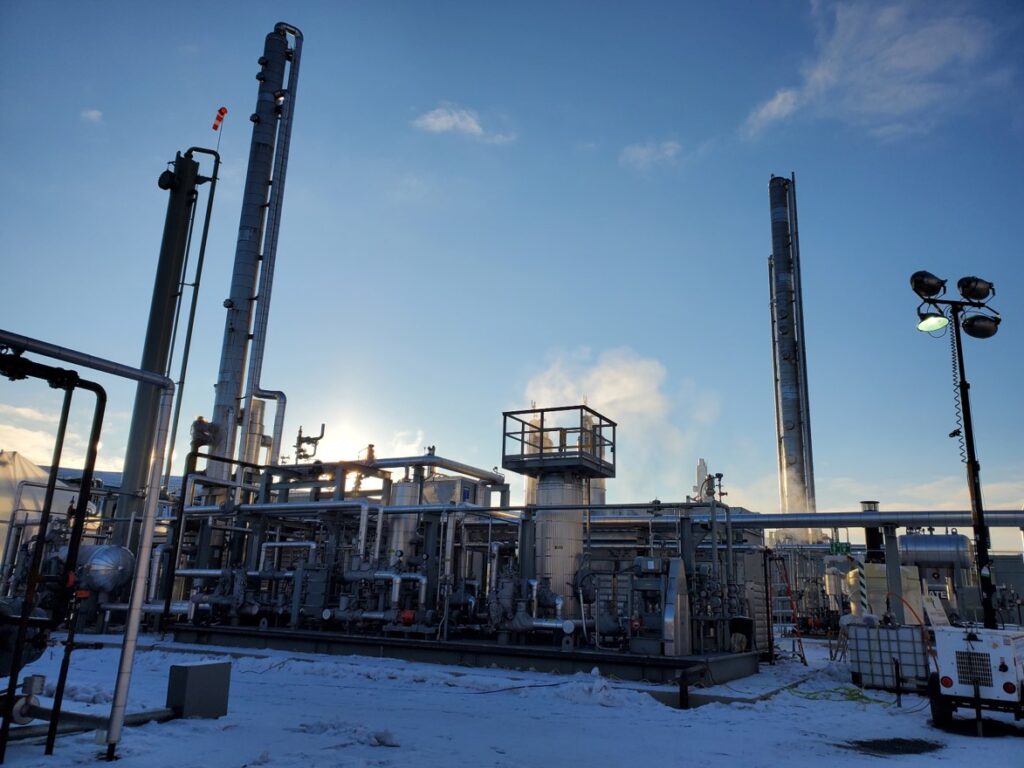Water is a critical impurity that must be removed, as it can cause corrosion and pipeline freezing during cold ambient weather, potentially damaging the mechanical integrity of the pipeline infrastructure. Water generated during oxygen removal and its presence in the landfill are two of the primary sources of water in landfill gas. Effective water removal is essential, and BCCK offers fit-for-purpose technologies to achieve the required water levels.
The outlet water requirements in the gas vary depending on the end use:
Electricity Generation
For projects where the end use is electricity generation, water removal down to a 40-50°F dew point is required. This is typically achieved by chilling the gas using a refrigerated chiller or chilled water. The condensed water is then separated using a two-phase separator with appropriate internals.


RNG Production
The typical pipeline specification for RNG production ranges between 4-7 lbs/MMSCF (84-147 ppmv). While Pressure Swing Adsorption (PSA) is one of the most cost-effective technologies for water removal, it requires integration with upstream equipment. This can result in some methane loss through venting and potential upsizing of upstream equipment, which could impact project economics. PSA and membrane technologies targeting combined water and CO₂ removal are common and cost-effective, but Temperature Swing Adsorption (TSA) is typically favored for water removal applications. TSA uses a molecular sieve as the media to facilitate water removal, offering a significant advantage due to no gas loss during the process and minimal integration or upsizing of upstream process equipment.
BCCK offers mole sieve dehydration units with various regeneration schemes tailored to optimize the overall economics of the process.
BCCK’s Dehydration Solutions
- Regenerative design
- A molecular sieve or equivalent adsorbent used
- Saturated inlet water concentrations
- <0.1 ppmv outlet water concentrations
- Excellent scalability (100 SCFM minimum)
- No emissions
- Can be combined with upstream Deoxo, if any, to enhance the overall economics of the process

